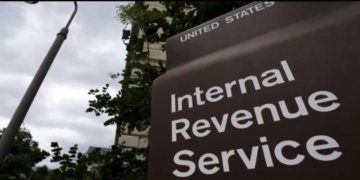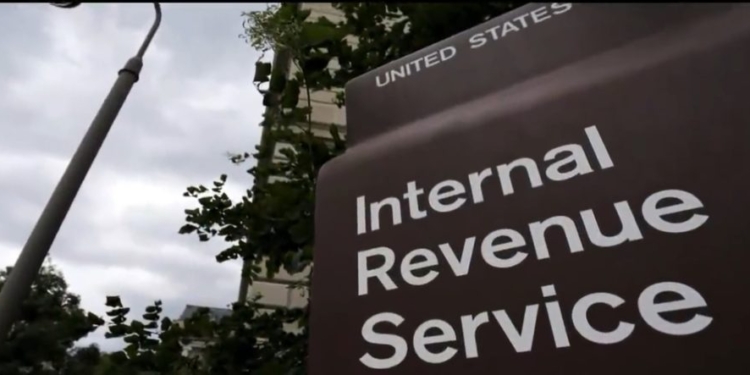State Republican lawmakers across the country are introducing and codifying legislation to cut taxes and ease government spending.
Since the November election, state Republicans have slashed income taxes, relieved property taxes and established reforms in an attempt to save taxpayers money. In contrast, some blue state Democrats are advancing legislation that will raise property taxes and fees for residents.
GOP governors in Georgia, Idaho, Mississippi and Utah have signed tax legislation into law. Furthermore, Republican legislators in Minnesota, Missouri and South Carolina have taken steps in proposing budgets and plans to cut taxes.
States with Democratic-controlled legislatures such as Maryland and Washington are discussing legislation that would increase taxes. In Virginia’s case, Republican Virginia Gov. Glenn Youngkin attempted to pass a tax cut and Democratic lawmakers turned it down in favor of less comprehensive cuts.
“State Republicans nationwide are taking strong steps to ease the economic pressures facing working-class families. In contrast, state Democrats have stood against Republicans at every opportunity, even voting for tax increases in some regions,” Mason Di Palma, Republican State Leadership Committee (RSLC) Communications Director said in an email. “It’s becoming increasingly clear to Americans which party genuinely champions the interests of the working class.”
Taxes Lowered
Republican Idaho Gov. Brad Little signed the largest income tax cut in the Gem State’s history, slicing $253 million in taxes for Idahoans. Little was initially concerned about the tax cut decreasing state revenue later this year, but decided to move forward with House Bill 40, lowering the income tax rate from roughly 5.7% to 5.3%.
Similarly, Republican Utah Gov. Spencer Cox signed House Bill 106 which will result in $127 million in tax reductions, knocking the rate down from 4.55% to 4.5%. The bill also takes vital steps in expanding the child tax credit, modifying the legislation to include taxpayers with children under five years old to claim the nonrefundable credit. Nonrefundable corporate and individual income tax credits will also be available for employer-provided childcare.
Meanwhile, Republican Mississippi Gov. Tate Reeves signed legislation to gradually phase out individual income taxes in his state. By 2030, House Bill 1 will chop the individual income tax rate to 3% and will continue lowering the rate annually until it is fully eliminated. The bill however does have one caveat; sales tax on groceries will fall from 7% to 5% as of July 1, but gasoline taxes will be increased through 2027.
Georgia Gov. Brian Kemp signed House Bill 1015 last spring, accelerating the largest state income tax cut package in the Peach State’s history which can save Georgia taxpayers an estimated $3 billion over the next ten years. The bill builds upon House Bill 1437 which sought to lower the 2025 tax rate from 5.49%, allowing the tax rate to now fall to 5.39%. Much like Utah, Georgia is also seeing dependent-related tax relief through House Bill 1021 which allows each taxpayer to deduct $4,000 per dependent rather than the current $3,000 per dependent.
Republicans in the Minnesota Senate introduced a plan in March to eliminate $600 million in “wasteful or unnecessary spending” which would include gutting state railway projects, noncitizen health services and government reforms. The transportation projects — which were encouraged and funded under Democratic Gov. Tim Walz’s proposed budget — account for roughly $250 million in waste with non-citizen funding equating to about $348 million.
Also in March, the South Carolina House passed a budget that will cut some of the state’s most heavily taxed people from a rate of 6.2% to 3.99% with the eventual goal of flattening the income tax rate at 2.49%. The flattened rate, although might take years to take hold, would mean three out of four taxpayers would pay less than they currently do. The budget also provides significantly more funds for state employees, infrastructure and education, and also increases the base teaching salary to $48,500.
“We want to enact the Trump agenda in South Carolina,” said Republican state Rep. Jordan Pace, leader of the state House Freedom Caucus. The bill now awaits a vote by the South Carolina Senate.
In early April, the Missouri House voted to move a bill forward to the Senate in an attempt to cut $1 billion in taxes. The bill would make tax credits for contributions to diaper banks, maternity homes and pregnancy resource centers match the full contribution compared to the prior 50-70% of the contribution. It would also allow for the Missouri standard deduction to be the same as the federal standard deduction plus $4,000. For federal income tax purposes, the bill would authorize income tax deductions for 100% of all income labeled as capital gain. A Senate hearing for the bill is yet to be scheduled.
In Virginia’s case, Republican Gov. Glenn Youngkin made proposals to cut taxes and phase out the unpopular car tax credit but was rebuffed by the Democratic House and Senate in favor of more targeted, less intensive tax relief. Virginia’s lawmakers instead green lit a $1 billion tax rebate for qualifying Virginians, setting individual filers to receive $200 and married filers $400. The Old Dominion state will also see an increase in their standard deduction — although not quite the amount Youngkin was pushing- bringing individual filers to $8,750 and married filers at $17,500.
Taxes Raised
Maryland’s Democratic controlled legislature passed a $67 billion budget in early April that will raise taxes and fees by $1.6 billion. The budget includes a 3% tax on information and technology services with an exception for quantum computing in College Park and also places a 2% tax on capital gains for those earning over $350,000 a year. Democrats will also be implementing taxes on recreational cannabis and sports wagering.
Washington, which also has a Democratic controlled legislature, is currently discussing legislation to raise property taxes with the intention of providing more funding for schools and services. Due to the tax hike, homeowners and landlords would face increased tax bills, potentially harming renters if landlords choose to raise prices to match inflating property taxes.
However, the Washington State Republican Party does not see this as a beneficial way to raise revenue; in an email to KOMO News, the group said the bill would triple growth on property taxes.
“Without a doubt, if this property tax goes into effect, many will be forced to foreclose on their homes,” the Washington State Republican Party told the news outlet.
All content created by the Daily Caller News Foundation, an independent and nonpartisan newswire service, is available without charge to any legitimate news publisher that can provide a large audience. All republished articles must include our logo, our reporter’s byline and their DCNF affiliation. For any questions about our guidelines or partnering with us, please contact [email protected].



























 Continue with Google
Continue with Google